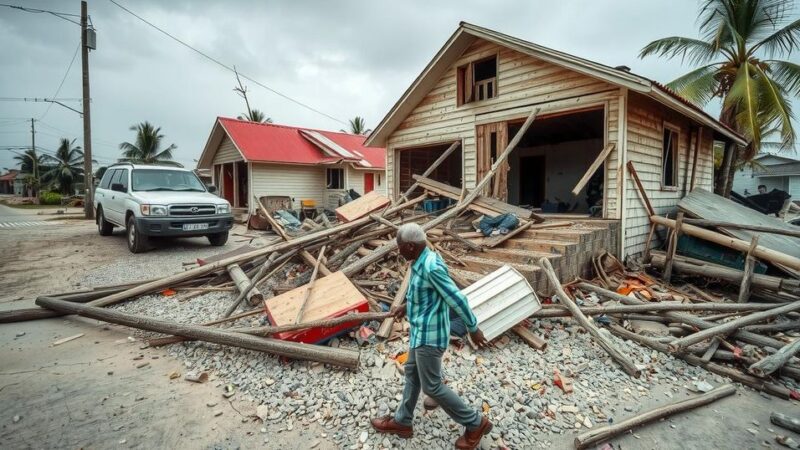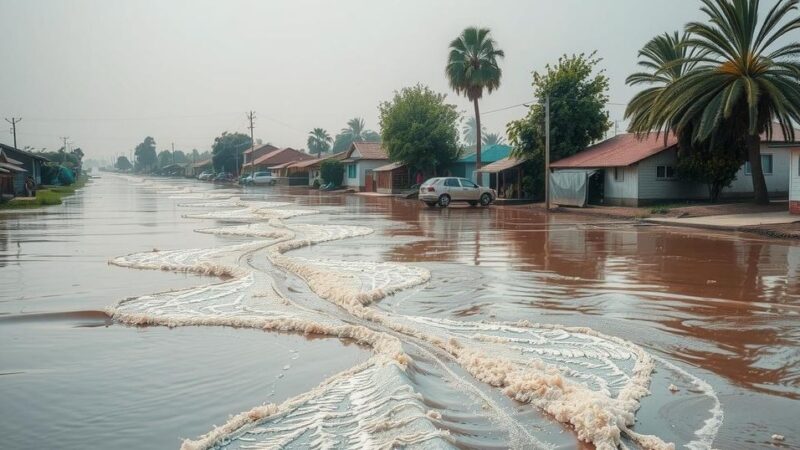COP29 in Baku, Azerbaijan, concluded amidst political turmoil and insufficient climate commitments, reflecting the adverse effects of resurgent populism and geopolitical rivalries on global climate diplomacy. While climactic disasters underscored the urgency for decisive action, significant challenges persisted, such as inadequate financial commitments and a lack of leadership. However, some countries pledged increased climate finance, revealing potential pathways for progress amid political complexities.
As COP29 concluded in Baku, Azerbaijan, it left behind a legacy of political strife, insufficient commitments, and a resurgence of populism impacting climate diplomacy. The summit, intended as a platform for global unity against the climate crisis, devolved into a demonstration of geopolitical tensions and populist denial of climate change. This pivotal year not only marked significant climatic disasters but also showcased the increasing challenges in achieving meaningful legislative action amid mounting global political discord, especially highlighted by extremes such as record heat waves and devastating floods.
The global climate crisis loomed large over COP29, exacerbated by rising temperatures and alarming climatic events worldwide. Eastern Africa faced unprecedented droughts, while Europe battled rampant wildfires. Significant environmental issues also emerged in Asia, where India suffered through its most severe heat wave to date, recording temperatures of 50.5°C. Furthermore, Latin America’s plight from deforestation and the devastating floods in Libya added urgency to the summit’s discussions, which ultimately fell short of delivering substantial progress amid evident political dysfunction.
The politicization of climate diplomacy was starkly evident with the re-election of Donald Trump, whose climate skepticism threatens to unravel prior agreements, including the Paris Climate Accord. His potential withdrawal would mark a significant setback, as the United States, historically the second-largest emitter, holds a crucial role in global climate commitments. Similarly, Argentina’s new President Javier Milei, dismissing climate change as a myth, withdrew from discussions, exemplifying the trend of populist leaders framing environmental concerns as subordinate to immediate economic interests, thus sidelining climate action.
In addition, geopolitical rivalries hindered productive negotiations. The host nation, Azerbaijan, with its vested interests in oil and gas, raised questions about the venue’s suitability for addressing climate challenges. Tensions between the US and China further complicated collaborative efforts, with both nations prioritizing national agendas over shared global responsibilities, particularly in climate finance commitments. Consequently, developing countries voiced their frustrations over inadequate financial support needed to combat the climate crisis, leading to perceptions of deepening inequalities in climate action.
Despite these challenges, some progress emerged during COP29. Over 200 nations committed to significantly increasing funding for developing countries to address the growing climate impacts, promising at least $300 billion per year by 2035. Notably, various leaders, including Giorgia Meloni of Italy and Recep Erdogan of Turkey, surprised the international community with commitments to ambitious climate goals, suggesting that even within a climate-sceptical political landscape, there exist pathways for genuine progress. However, these measures remain insufficient against the backdrop of the $1 trillion needed annually to confront climate change,
The aftermath of COP29 highlights an urgent need for restructuring climate governance to foster accountability and inclusivity among nations. Developed countries must fulfill their financial obligations, particularly concerning the long-awaited loss-and-damage fund, while emerging economies must engage constructively in global climate dialogues. Middle powers and non-state actors stand poised to provide critical leadership in response to political populism and geopolitical rivalry, as various subnational endeavors have historically demonstrated greater resolve in achieving climate action.
As the world anticipates COP30 in Brazil, the challenges remain vast, yet the opportunity for transformative change in climate diplomacy is paramount. COP29 may signal a downturn in collaborative efforts, but it also serves as an urgent reminder that coherent and proactive climate strategies are essential to confront the impending crises posed by climate change. The critical question moving forward is whether global leaders will unify and act decisively or allow the momentum for climate action to dissipate permanently.
The 29th Conference of the Parties (COP29) served as a vital summit convening world leaders to address the pressing climate crisis amidst escalating global challenges. The event took place against a backdrop of increasing climate disasters, notably severe heat waves in India and significant flooding in Libya, while conflicting political narratives, particularly from populist leaders, complicated international cooperation. As countries hovered near the 1.5°C global warming threshold, COP29 was positioned as an essential platform for catalyzing meaningful climate action and governance.
In summary, COP29 served as a reflection of the fraught intersection of climate diplomacy with political populism and geopolitical rivalries. While some commitments emerged, they were dwarfed by the obligations required to address the urgent impacts of climate change globally. The future of international climate cooperation now hinges upon the ability of nations to prioritize collaboration, accountability, and inclusivity in their climate policies as they prepare for subsequent summits.
Original Source: m.thewire.in







